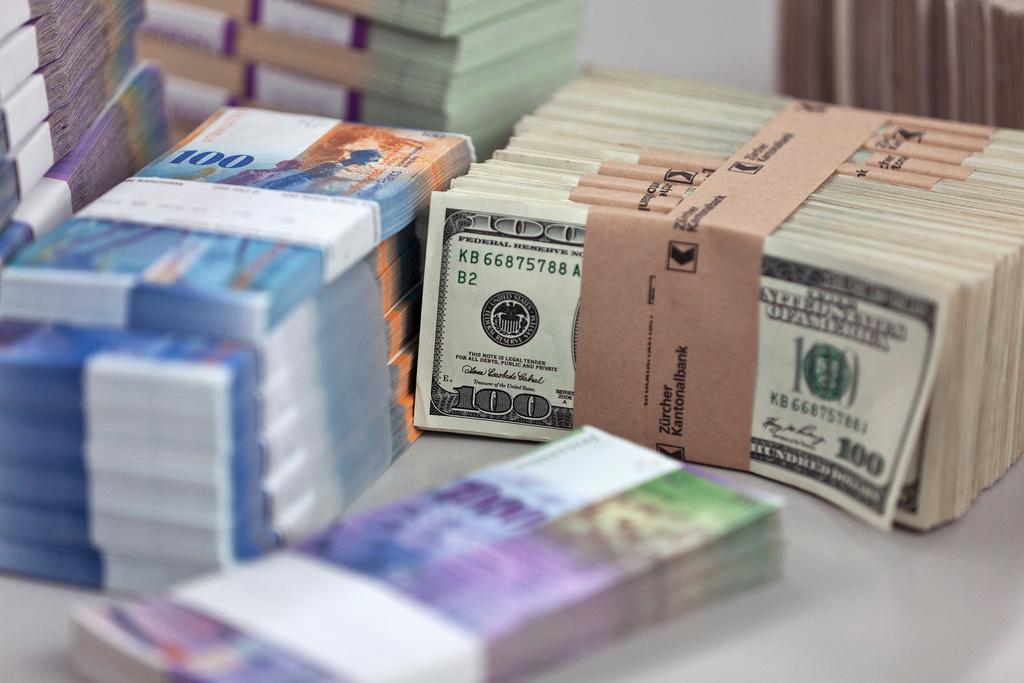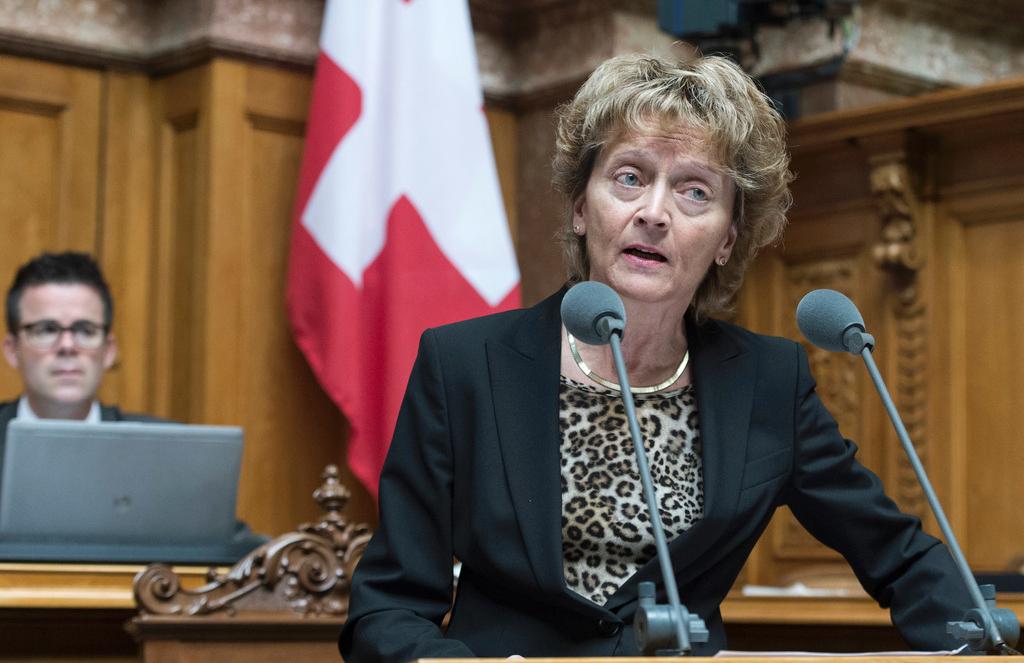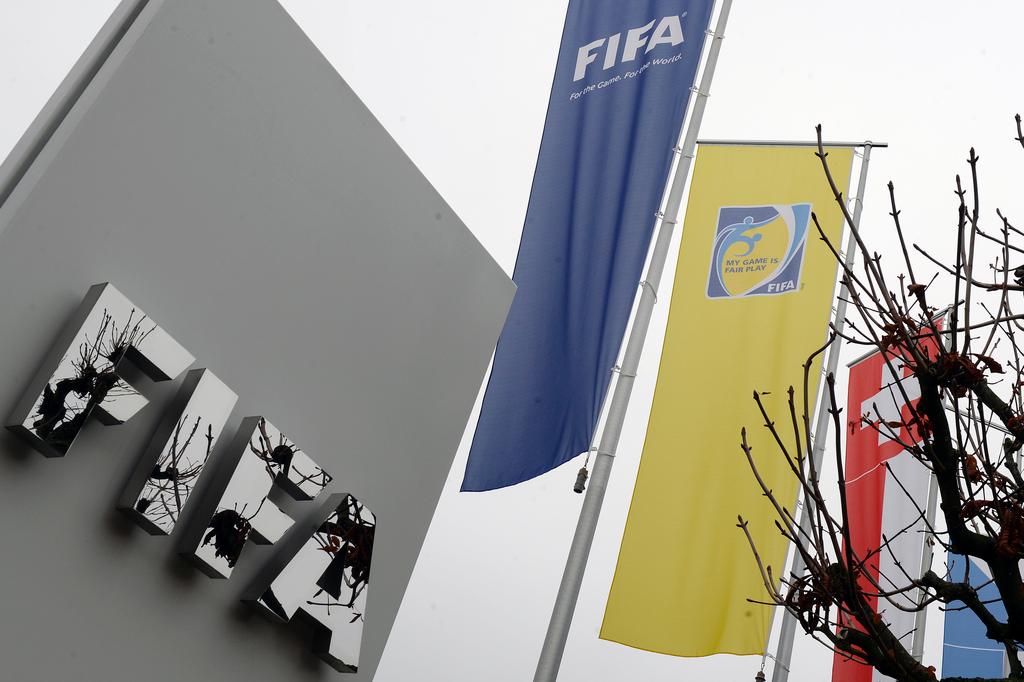Switzerland tightens its money-laundering rules

Parliament has bowed to international pressure, tightening the country’s money-laundering rules. There will be a CHF100,000 ($104,000) cap on cash transactions, and not only foreign dictators, but also senior politicians and officials like FIFA's Sepp Blatter, will be watched more closely.
In recent years they have crumbled one after the other: the practices, the cherished values and traditional regulation of the Swiss financial and trade centre. The most recent example is its anti-money-laundering regulation, which a majority of politicians and the public see as exemplary worldwide. Most prominent is the freezing of dictators’ assets on Swiss bank accounts.
But internationally, regulations are getting tougher and more closely monitored and Switzerland because of its international economic exposure has no choice but to adopt the standards if it does not want to be marginalised.
Tougher money laundering rules were accepted after months of flip-flopping and despite numerous turns and distractions. The parliamentary decision process was characterised by reluctance, resistance, defiant adherence to Swiss sovereignty – and finally the relenting of a majority.
Threatening black list
It all began with the “Groupe d’action financière” (Gafi), the money-laundering task force of the Organisation for Economic Development (OECD), which urged member countries – including Switzerland – to tighten their regulations. The OECD on a regular basis examines its member countries and blacklists states that fail to comply.
In view of those requirements the cabinet has asked parliament to revise the existing legislation. The most important points: cash payments may not exceed CHF100,000, and serious tax offences are considered as a predicate offence to money laundering.
Also, senior politicians and officials at international sports organisations based in Switzerland are deemed to be a politically exposed person (PEP), requiring banks to keep a particularly vigilant eye on their financial transactions to prevent corruption. And, the anonymous ownership of the bearer shares has to be more transparent.
Requirements met
That was the most urgent reform parliament had to pass because the examination of the OECD‘s Global Forum on Transparency and Exchange of Information for Tax PurposesExternal link will begin in February. One of the problems Switzerland has to solve so it will not to end up on the blacklist is to the ownership of bearer shares.
“We now meet this requirement. Personally I regret it, because it was a 130-year-old Swiss tradition. Bearer shares were never meant to be an instrument to dodge taxes, but we have now given up this tradition because of international pressure,” said Peter V. Kunz, professor of economic law and comparative law at the University of Bern.
Blatter and the representatives
The House of Representatives first voted against the new rule that they would be considered PEPs. They only changed their mind after Finance Minister Eveline Widmer-Schlumpf pointed out that it would be ironic for the clause to be rejected exactly by those who belong to the group of senior Swiss politicians the rules would apply to.
In the future, a member of the House of Representatives or the Senate is considered a PEP just like senior foreign political figures or senior officials of sports associations that are active worldwide.
This means that the rule will apply to the director of football’s world governing body FIFA, Sepp Blatter, and his vice directors as well as the director of the International Table Tennis Federation based in Lausanne, but not to executives of the Union of European Football Associations because UEFA is not operating worldwide.
The CHF100,000 question
A lot more controversial was the cash rule. In future, transactions up to CHF100,000 may be paid for in cash. Everything above has to be wired by a bank. That is what the government originally wanted. Jeweller’s shops in Geneva and Zurich as well as precious metal merchants, car and arts dealers, however, rebelled. In these sectors cash is still widely used.
The representatives from the right and centre-right decried the proposal as over-regulation and made a complicated proposal, which the representatives eventually accepted. The seller has to identify and register any person who wants to pay more than CHF100,000 in cash or the money has to be transferred.
Homework done
The debate was complicated because there were many single motions and requests for exceptions, aimed at exploiting all the options and there was a risk the proposal would be rejected as a whole. In the end, all objections were retracted or rejected.
“The problem with Gafi is that it is not always obvious what is effectively required, but the bill, as it has been passed by parliament now, is certainly internationally compatible and should be acceptable by Gafi,” Kunz said.
It would be presumptuous, however, to sit back and relax. “Over the coming years there will be further requirements in this area.” As a matter of fact, European Union countries have already introduced tougher rules on cash transactions. The EU has a maximum limit of €15,000. “The cash question will most likely return to the political agenda sooner or later,” Kunz said.
For the moment, Switzerland has done its homework regarding money laundering, particularly as the Gafi examination will – unlike previously planned – not already take place in the coming months, but only in spring 2016.
There is also little risk that there will be a referendum because the opposition against the CHF100,00-franc cap would hardly get the backing of a majority because few Swiss have that much money laying around to spend on jewellery or a work of art.
March 2009: The cabinet bows to the pressure of the OECD and step by step dismantles its banking secrecy regulations. Legal assistance is not only possible in cases of tax fraud but also in cases of tax dodging.
2011: The model of a flat-rate withholding tax, where tax evaders would have remained anonymous runs aground because of opposition from Switzerland’s largest trading partner, Germany.
June 2013: The cabinet announces that Switzerland will cooperate with the OECD and contribute to working out the terms for a standard on the automatic exchange of information.
2014: The FATCA agreement in practice suspends banking secrecy in the US.
October 2014: Fifty-five states decide to introduce the automatic exchange of information in 2017. Switzerland also plans to introduce the standard, a decision still requiring parliamentary approval. A referendum is not unlikely.
(Translated from German by Chantal Britt)

In compliance with the JTI standards
More: SWI swissinfo.ch certified by the Journalism Trust Initiative










You can find an overview of ongoing debates with our journalists here . Please join us!
If you want to start a conversation about a topic raised in this article or want to report factual errors, email us at english@swissinfo.ch.